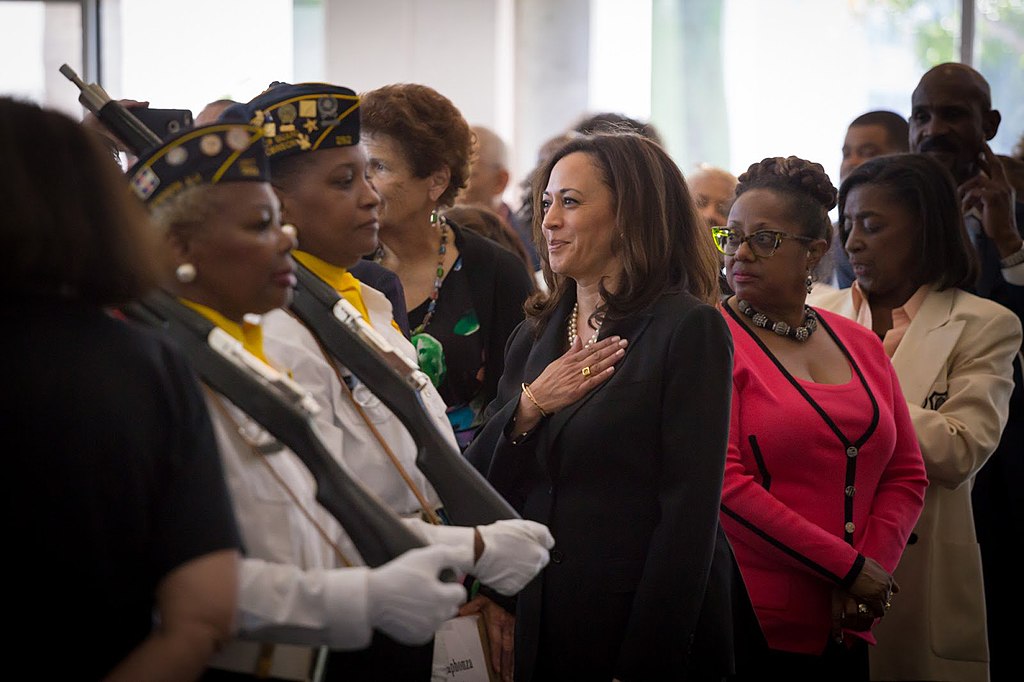Vice President Kamala Harris has repeatedly emphasized her middle-class background, proudly highlighting her upbringing as a key part of her identity. However, as she continues to speak about her roots, critics are accusing Harris of failing the very people she claims to represent. Many argue that her policies have done more harm than good for the middle class, sparking controversy over her leadership.
In numerous speeches and public appearances, Harris has made a point to mention her middle-class upbringing, often using it as a way to connect with everyday Americans. “I’m proud of where I come from, and I know what it means to work hard,” she said at a recent event. Harris has positioned herself as a leader who understands the struggles of working-class families and claims her policies are designed to lift them up.
Yet, despite her rhetoric, critics argue that Harris’s policies, particularly during her time as vice president, have had a negative impact on the middle class. From inflation to increased taxes and economic policies that some say favor the wealthy, Harris has faced growing criticism for failing to deliver on her promises to working Americans. “For someone who’s so proud of her middle-class roots, she’s done a lot to hurt them,” one political analyst remarked.
One of the most controversial aspects of Harris’s leadership is the economic strain that middle-class families have experienced under the current administration. Inflation has risen sharply, leading to higher costs for everyday goods and services, from groceries to gas. Critics argue that the administration’s economic policies, including spending plans and tax increases, have disproportionately affected middle-income households, making it harder for them to keep up with rising expenses.
In addition, Harris’s involvement in pushing for policies like the expanded child tax credit and infrastructure spending has sparked debate over their long-term impact on the economy. While these initiatives were initially intended to help middle-class families, some argue that the resulting increase in government spending has contributed to inflationary pressures, ultimately making life more difficult for those she claims to champion.
Her stance on tax policy has also come under fire. Critics claim that the tax hikes proposed by the Biden-Harris administration, while aimed at the wealthy, have indirectly hurt small business owners and middle-class earners. “She’s out of touch with the people she says she represents,” said one small business owner. “Rising taxes and inflation are crushing the middle class.”
Despite these criticisms, Harris continues to assert that her policies are working to support working-class Americans. She highlights measures like expanding healthcare access, improving education, and addressing income inequality as proof of her commitment to the middle class. However, for many, these efforts fall short of addressing the real challenges facing middle-income families today.
As Harris prepares for the 2024 election season, her connection to her middle-class roots will likely remain a central talking point in her campaign. Whether she can bridge the gap between her rhetoric and the realities faced by the middle class remains to be seen. For now, her critics aren’t buying it, and the debate over her policies and their impact on the middle class is far from over.



 Zelenskiy Urges Change in Iran After U.S. and Israeli Strikes, Cites Drone Support for Russia
Zelenskiy Urges Change in Iran After U.S. and Israeli Strikes, Cites Drone Support for Russia  Macron Urges Emergency UN Security Council Meeting as US-Israel Strikes on Iran Escalate Middle East Tensions
Macron Urges Emergency UN Security Council Meeting as US-Israel Strikes on Iran Escalate Middle East Tensions  Russia Signals Openness to U.S. Security Guarantees for Ukraine at Geneva Peace Talks
Russia Signals Openness to U.S. Security Guarantees for Ukraine at Geneva Peace Talks  Why did Iran bomb Dubai? A Middle East expert explains the regional alliances at play
Why did Iran bomb Dubai? A Middle East expert explains the regional alliances at play  Israel Declares State of Emergency as Iran Launches Missile Attacks
Israel Declares State of Emergency as Iran Launches Missile Attacks  AI is already creeping into election campaigns. NZ’s rules aren’t ready
AI is already creeping into election campaigns. NZ’s rules aren’t ready  EU Urges Maximum Restraint in Iran Conflict Amid Fears of Regional Escalation and Oil Supply Disruption
EU Urges Maximum Restraint in Iran Conflict Amid Fears of Regional Escalation and Oil Supply Disruption  Pentagon Leaders Monitor U.S. Iran Operation from Mar-a-Lago
Pentagon Leaders Monitor U.S. Iran Operation from Mar-a-Lago  Netanyahu Suggests Iran’s Supreme Leader Khamenei May Have Been Killed in Israeli-U.S. Strikes
Netanyahu Suggests Iran’s Supreme Leader Khamenei May Have Been Killed in Israeli-U.S. Strikes  Does international law still matter? The strike on the girls’ school in Iran shows why we need it
Does international law still matter? The strike on the girls’ school in Iran shows why we need it  UK Accepts U.S. Request to Use British Bases for Defensive Strikes on Iranian Missiles
UK Accepts U.S. Request to Use British Bases for Defensive Strikes on Iranian Missiles  U.S. Deploys Tomahawks, B-2 Bombers, F-35 Jets and AI Tools in Operation Epic Fury Against Iran
U.S. Deploys Tomahawks, B-2 Bombers, F-35 Jets and AI Tools in Operation Epic Fury Against Iran  Middle East Conflict Escalates After Khamenei’s Death as U.S., Israel and Iran Exchange Strikes
Middle East Conflict Escalates After Khamenei’s Death as U.S., Israel and Iran Exchange Strikes  Marco Rubio to Brief Congress After U.S.-Israeli Strikes on Iran
Marco Rubio to Brief Congress After U.S.-Israeli Strikes on Iran  Trump Says U.S. Attacks on Iran Will Continue, Warns of More American Casualties
Trump Says U.S. Attacks on Iran Will Continue, Warns of More American Casualties  Trump to Address Nation as U.S. Launches Strikes in Iran, Axios Reports
Trump to Address Nation as U.S. Launches Strikes in Iran, Axios Reports  Trump Launches Operation Epic Fury: U.S. Strikes on Iran Mark High-Risk Shift in Middle East
Trump Launches Operation Epic Fury: U.S. Strikes on Iran Mark High-Risk Shift in Middle East 































